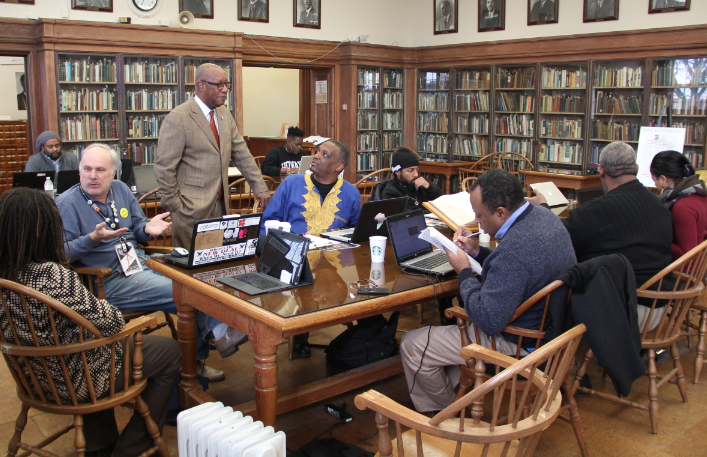It started and hasn’t stopped. President George Bush mentionedthe growing problem of steroids in sports during his State of theUnion address and within two-months Donald Fehr, the leader ofbaseball’s powerful players’ union, and Major League BaseballCommissioner (MLB) Bud Selig were on Capitol Hill facing thescrutiny of senators.
Baseball has long had a national reputation of leniency whenregarding performance-enhancing drugs. Their drug policies andtesting are more lax than other leagues. But since Bush’s State ofthe Union reference, the past month has seen a rash of news-makingactivity.
The month began with a report that baseball’sbiggest star, Barry Bonds, and other players had received steroidsfrom Bond’s personal trainer. This set off several mud-slingingcomments by Hall-of-Farmers calling into question the achievementsof current stars, which motivated a league imposed gag order fromthe Commissioner’s office — all this setting up what may be asweeping and radical change for MLB drug policies when the seasonbegins.
The issue heated up when Bush, who owned theTexas Rangers from 1989 to 1994, was reported as saying he felt theMLB’s recently implemented drug policy was not “adequatelyaddressing the issue”, according to John P. Walters as he wasquoted in a Jan. 21 article in The Washington Post. Hisfeelings became public after his State of the Union address.
“Some in professional sports are not settlingmuch of an example. The use of performance-enhancing drugs likesteroids in baseball, football, and other sports is dangerous, andit sends the wrong message: that there are shortcuts toaccomplishment, and that performance is more important thancharacter,” Bush said.
Though Selig and the MLB were making plans tofurther address the steroid issue, Bush’s call to “get rid ofsteroids now” put added pressure on league officials to actpromptly.
In the beginning of March, a report by the SanFrancisco Chronicle came out reporting federal investigatorsreceived information that Bonds, New York Yankees first basemanJason Giambi, right fielder Gary Sheffield, and several players hadallegedly received steroids from Bay Area Laboratory Co-Operative,now known as BALCO.
According to the report, the players allegedlyreceived the drugs from Bond’s personal weight trainer, GregAnderson, who was indicted Feb. 12 on charges of distributingillegal performance enhancing drugs to professional athletes. Bondsand Sheffield denied the allegations while Giambi refused tocomment.
A week after the investigation findings becamepublic, Selig and Fehr were on Capitol Hill facing an incredulousSenate committee for 21/2 hours.
“Your failure to commit to addressing thisissue straight on and immediately will motivate this committee tosearch for legislative remedies,” said Sen. John McCain (R-Ariz.),who told Selig and Fehr that baseball “is about to become a fraud”.”I can tell you, and the players you represent, the status quo isnot acceptable. And we will have to act in some way unless the[baseball players’ union] acts in the affirmative and rapidfashion.”
As the investigation scandal fueled debateand, the MLB and Selig issued a league wide gag order to guardagainst players and officials making public statements. The orderdid not stop Hall-of-Famers Reggie Jackson and Jim Palmer fromvoicing their opinions.
“Somebody definitely is guilty of takingsteroids,” Jackson told the Atlanta Journal-Constitution. “Youcan’t be breaking records hitting 200 home runs in three or fourseasons. The greatest hitters in the history of the game didn’t dothat. Bonds hit 73…I mean come on now. There is no way you canoutperform Hank Aaron and Willie Mays at that level.”
Palmer was skeptical too: “When Bonds goesfrom 49 [home runs] to 73, you just wonder,” he said in aninterview with the Baltimore Sun.
Of all players, it is Bonds who has faced themost scrutiny. It was his trainer indicted and it is his recentstreak of prolific home run hitting and record-setting that hasbeen called into question. He has not been able to comment due tothe league gag order.
At the Senate hearing, McCain told Fehr andSelig that the MLB “is about to become a fraud” because of thequestions over the accomplishments of some of its leading stars,Bonds perhaps chief among them.
To end speculation and prevent another fanfallout similiar to the 1995 players’ strike, reports haveconfirmed that the MLB will begin testing players this season forTHG, also known as tetrahydrogestrinone. THG has been at the centerof the steroid scandal and the Federal Drug Administration bannedTHG as an illegal drug Oct. 28, although MLB did not immediatelyadd it to their list of banned substances.
It has also been reported that, if the MLB andthe Players’ Union cannot come to an agreement on the terms of thedrug-testing schedule and list of substances, Selig will attempt touse his “best interest of baseball powers”, a provision of theMajor League Constitution that past commissioners have used for avariety of purposes. But some league executives are not sure thatSelig’s use of this power will yield its desired result.





